Brandon Country Park Fungi & Slime Moulds – August 2023
27 August 2023
Some highlights from our walk around Brandon Country Park.
Fuligo septica.
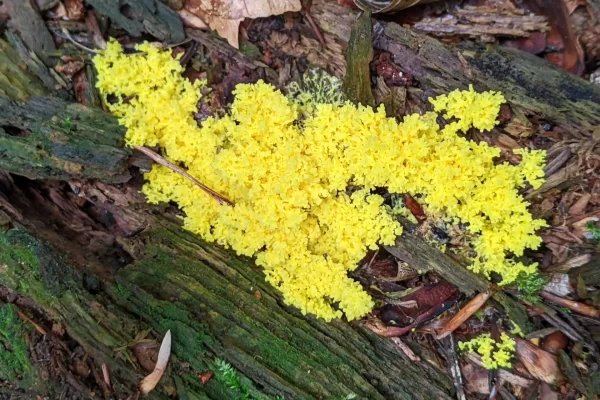
Brandon Country Park – 27th August 2023
More Fuligo septica.
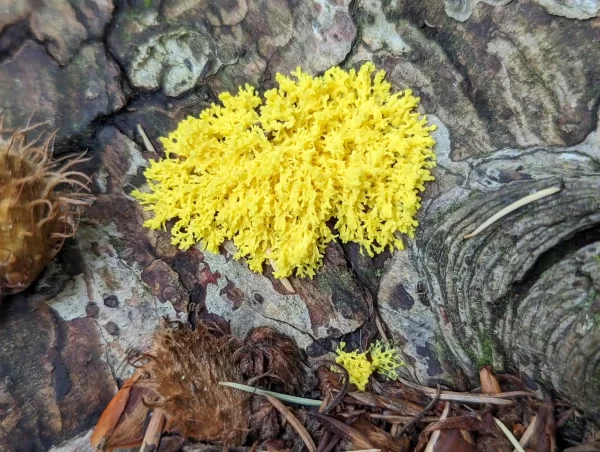
Brandon Country Park – 27th August 2023
A rose coloured Tubifera ferruginosa with a more mature greyish violet clump surrounding the pine needle.
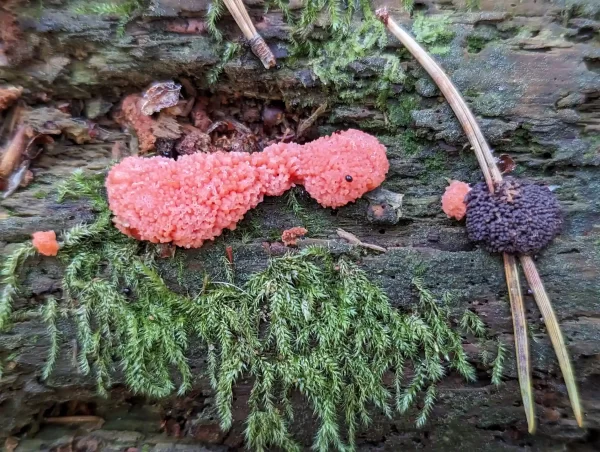
Brandon Country Park – 27th August 2023
Could the slime mould below be the plasmodial stage of Physarum polycephalum ?
EDIT 06.01.24: This could possibly be the plasmodial form of Badhamia utricularis.
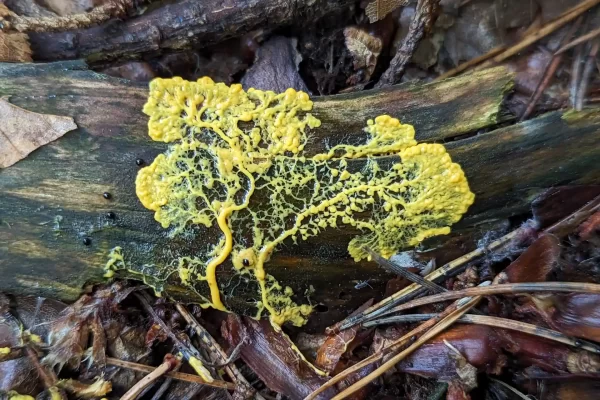
Brandon Country Park – 27th August 2023
It’s always wonderful to find Calocera viscosa (yellow staghorn).
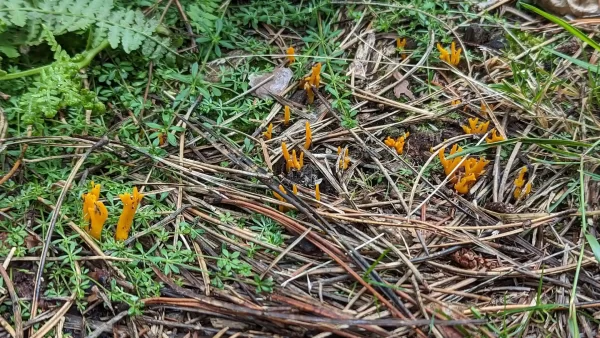
Brandon Country Park – 27th August 2023
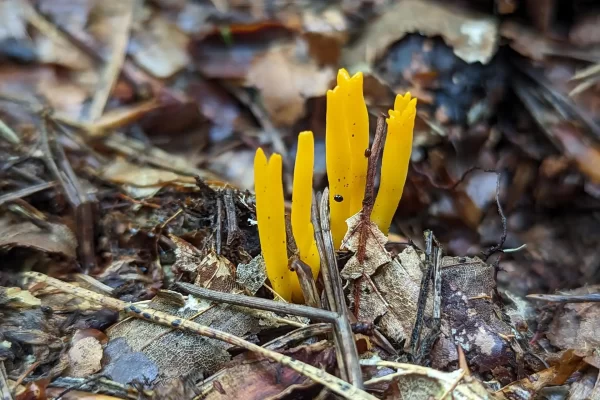
Brandon Country Park – 27th August 2023
The parachute fungi below could be Marasmius rotula (collared parachute) or perhaps Gymnopus androsaceus (horsehair parachute).
The main difference between the two is that the gills of M. rotula attach to a collar around the stem whereas with G. androsaceus the gills attach directly to the stem [First Nature].
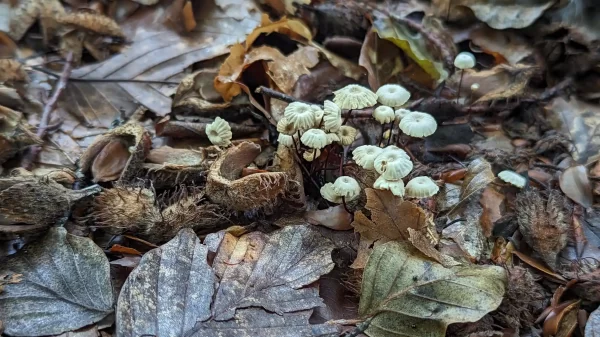
Brandon Country Park – 27th August 2023
After a Google image search, I think the fungus below is Rhizina undulata (doughnut fungus or pine firefungus) .
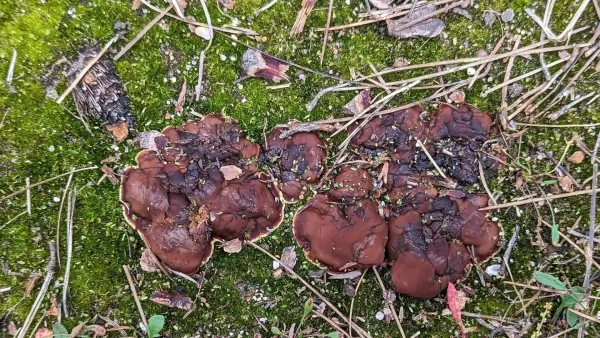
Brandon Country Park – 27th August 2023
Wikipedia states that it “grows on burned soil or conifer debris”, and indeed we found it along a path adjacent to a conifer stand that had been subject to fire.
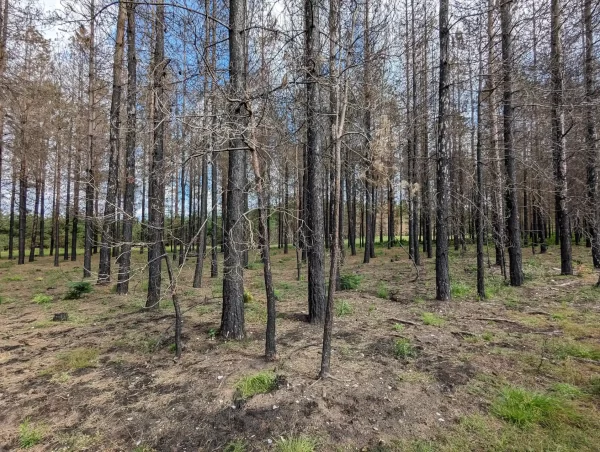
Brandon Country Park – 27th August 2023
We found this black growth along the same path — could it be burnt Rhizina undulata ?
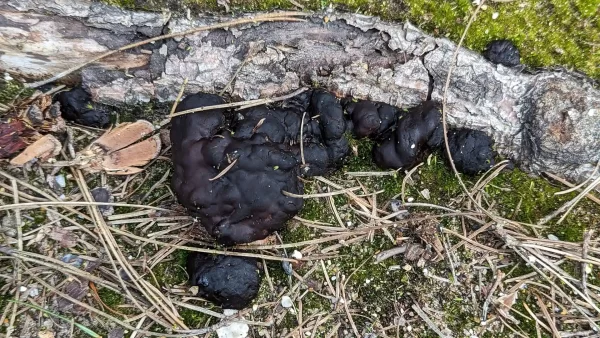
Brandon Country Park – 27th August 2023
On the perimeter of the heath adjacent to the conifer stands, fellow wanderers alerted us to some strange growths by the path that “looked like slices of tree trunk”.
The fungi below are Coltricia perennis (tiger’s eye) and are not common — found on the edges of conifer plantations and on acidic heathland [1].
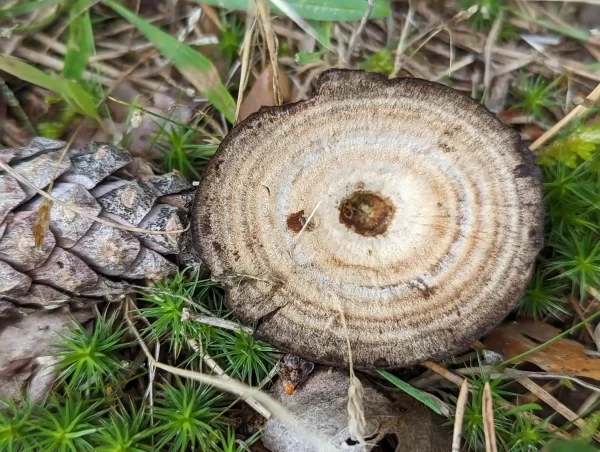
Brandon Country Park – 27th August 2023
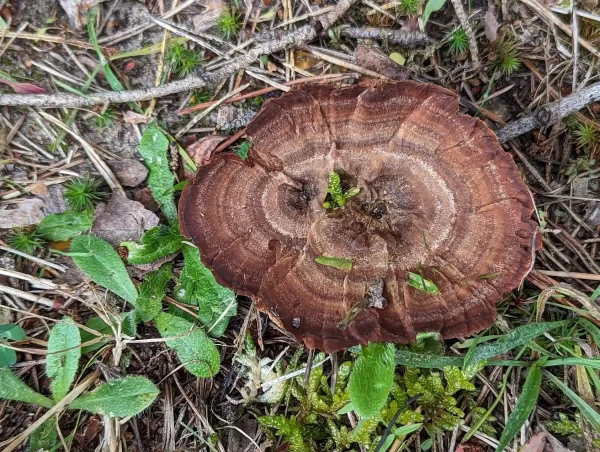
Brandon Country Park – 27th August 2023
No image search could help with identifying these mottled fungi that were growing off pinecones — but could they actually be Auriscalpium vulgare – earpick fungus.
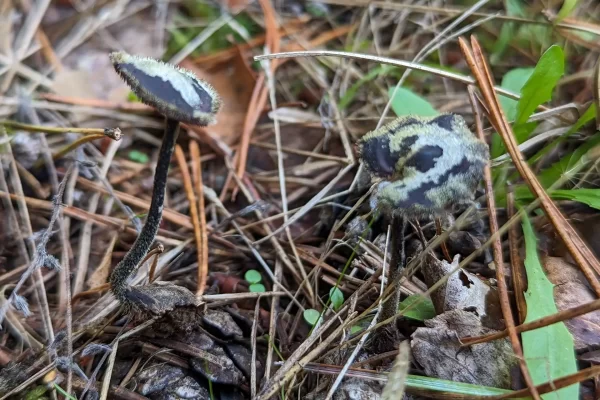
Brandon Country Park – 27th August 2023
The curiously unsettling yet beautiful Pseudoinonotus dryadeus (oak bracket).
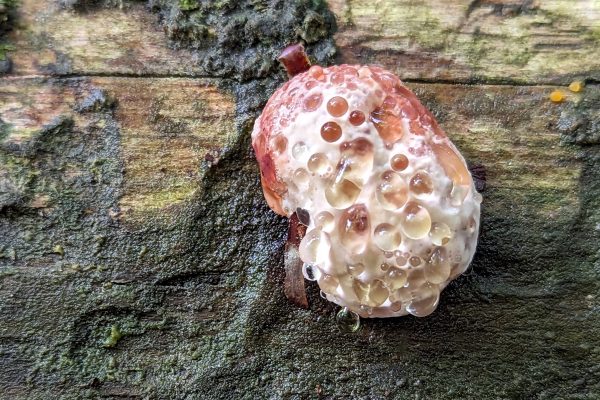
Brandon Country Park – 27th August 2023
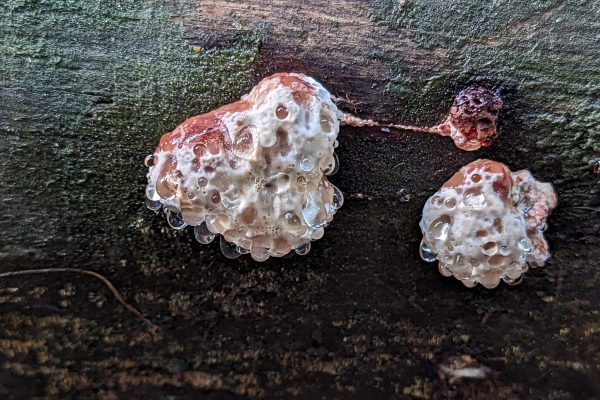
Brandon Country Park – 27th August 2023
I don’t know what the following fungi are but I find the gill and the pore structures fascinating.
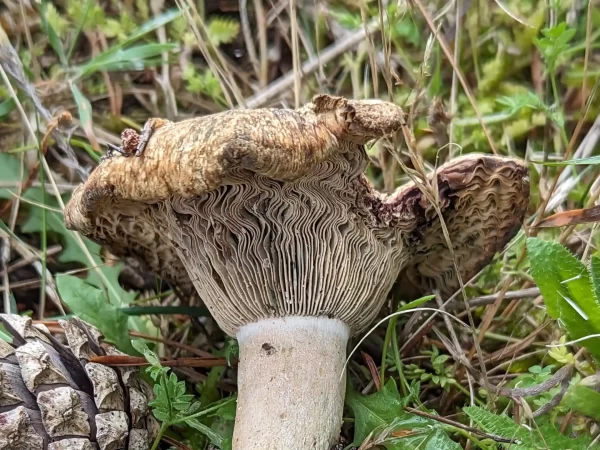
Brandon Country Park – 27th August 2023
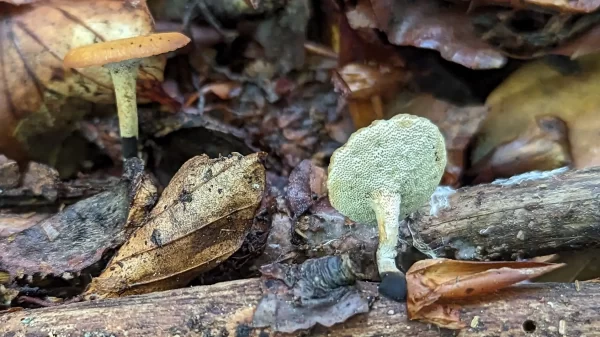
Brandon Country Park – 27th August 2023
[1] Coltricia perennis at First Nature